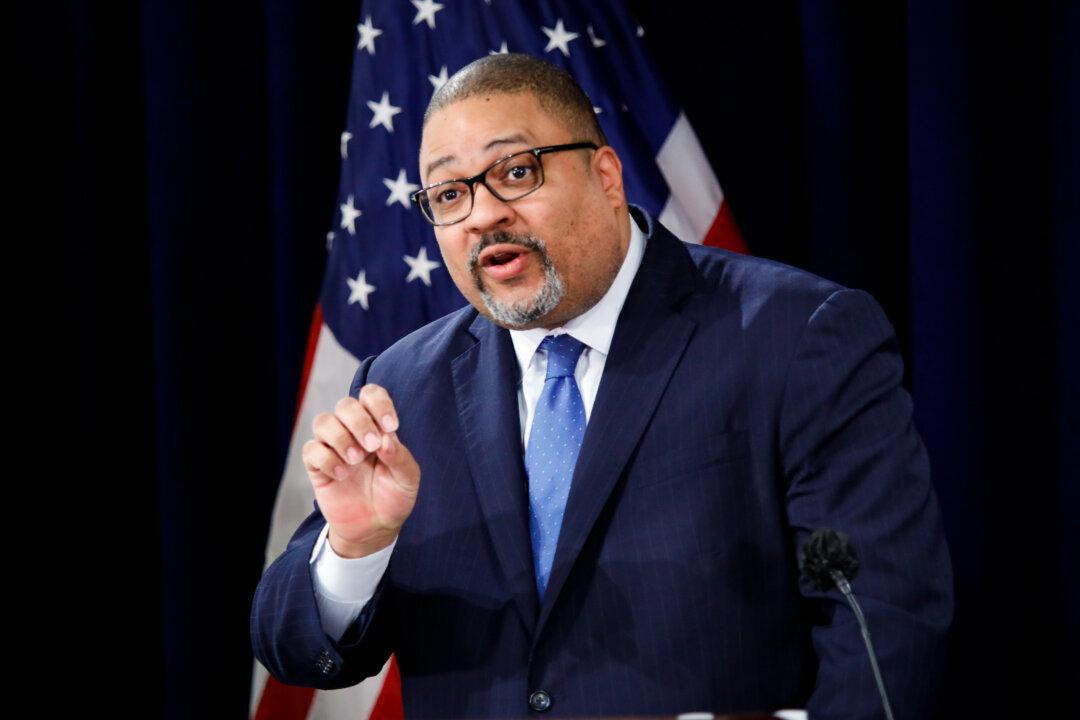Manhattan District Attorney Alvin Bragg pushed back on demands for sanctions in a March 21 court filing, arguing that former President Donald Trump’s claims were “a grab-bag of meritless discovery arguments in the latest of a long series of attempts to evade responsibility for the conduct charged in the indictment.”
Earlier this month, President Trump’s attorneys were given 104,000 pages of discovery less than three weeks before trial in a case alleging he falsified business records, prompting allegations of prosecutorial misconduct.





